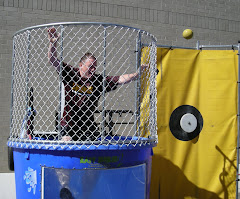By Michelle Healy, USA TODAY
Homework's balancing act: What's the right amount? - USATODAY.com
Life is pretty stress-free these days at the Coffman home in Alexandria, Va. Noah, 11, is busy hanging out with his grandmother, Jan Jackson, visiting from Indiana. On their agenda: the skatepark, movies, shopping, a few days at the beach, lunch with Mom near her office building.
http://www.hcpss.org/aboutus/guidelines_homework.shtml
Life is pretty stress-free these days at the Coffman home in Alexandria, Va. Noah, 11, is busy hanging out with his grandmother, Jan Jackson, visiting from Indiana. On their agenda: the skatepark, movies, shopping, a few days at the beach, lunch with Mom near her office building.
But soon, Grandma Jan will head home; summer break will end; and Noah's sixth grade will get into full swing, which means homework — and the stress, long hours, and uncertainty that can come with it.
Noah's mom, Lisa, doesn't recall her own elementary-school homework as stressful: "Sure, you had it, but it was simply reinforcement of what you did during the day."
Now, as a parent, "depending on the night, it's all over the spectrum — too little, too much. Sometimes it's almost like an additional unit that the teacher didn't get a chance to get into during the day."
On especially challenging nights last year, Lisa and her husband, Greg, would joke: "We're not in fifth grade anymore. Why are we tripping about this?" she says with a laugh.
Across the country, discussions about homework loads and how they're weighted in students' overall grades are hot topics among parents and within school districts.
The nation's second-largest school system, the Los Angeles Unified School District, downgraded the importance of homework to no more than 10% of a student's final grade. The stated goal: to base students' grades on what they know, not on assignments for outside class.
That was May. In July, the system, responding to criticism, rescinded the policy.
Public opinion on homework moves in cycles, and "at the moment, we're in a 'too much' cycle," says Harris Cooper, a homework researcher and professor of psychology and neuroscience at Duke University.
Two main factors fuel today's cycle, he says: intense pressure on educators to meet national testing standards, and some parents' belief that excessive homework is synonymous with a rigorous education, which will get their children into select colleges and universities.
But his review of research shows that too much homework can cause student burnout — and no higher grades.
It also "robs kids of downtime, family time, sleep and the opportunity to do a lot of the other things that families say are important for their children to having a balanced life," says Cathy Vatterott, associate professor of education at the University of Missouri-St. Louis and author of Rethinking Homework.
Homework's real value is in "reinforcing or practicing skills already learned and giving (teachers) feedback to check for understanding," says Vatterott, a former teacher and principal who trains teachers on creating meaningful homework.
"There's a lot of bad homework," she says. "It's often busy work, or it's made intentionally difficult or long."
Some education advocates and teachers believe homework kills interest in learning, and schools would be more effective with absolutely no homework. But Vatterott believes most parents are not comfortable eliminating homework. "They feel that it is important for children to learn how to work on their own, and that practice is necessary to develop and refine intellectual skills."
Come September, Lisa Coffman will take comfort in knowing that her son, so far, seems less stressed about homework than do his parents. "If he has to do it, he tolerates it," she says. "It's part of his job."
For more information about Howard County Public School's Homework Guidelines, click here:
http://www.hcpss.org/aboutus/guidelines_homework.shtml




















No comments:
Post a Comment